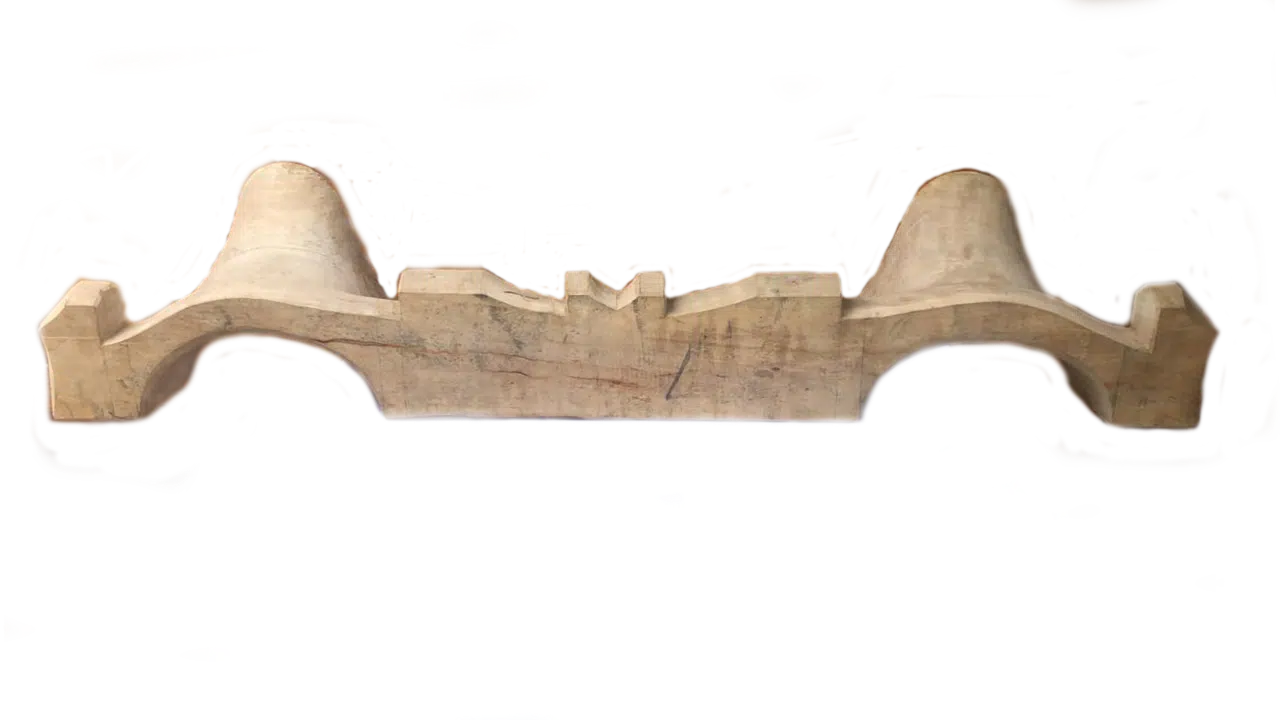
The yoke is a wooden instrument that allows a team of oxen or mules to be formed.
Yugo is a term that identifies the instrument made of wood where mules or oxen are tied to form a yoke . The device for steering the plow or the pole of the cart is attached to it.
By extension, yoke - with etymological origin in the Latin iugum - is usually described as heavy work or effort , burdens or ties , while the notion of yoke is also used to name animals or people who work together .
Yugo as an instrument
Regarding the yoke as an instrument, it is possible to distinguish between the sobeo or center (the central and straight part), the tables (the prominences for the straps) and the camels or gamellas (the curved parts). They are joined to the plow through the barzón , as the hoop is known from which a dowel protrudes that keeps it firm on the inner side of the plow spear.
This barzón, for its part, is tied to the yoke with a strap. It is worth mentioning that there are some longer ones (used when the animal must drag a cart or heavy load) and shorter ones (suitable for plowing tasks).
Other uses of the term
As a synonym for arduous and difficult task or bondage, the yoke is used in various ways in everyday language. For example: “I want to retire to leave the yoke of this job behind” , “All life is the same: more and more yoke until the body can no longer take it” , “The yoke of the mortgage is becoming too heavy for the economy familiar" .
Yugo is also the veil that was applied to the bride and groom during the wake mass, the component found in the neck of a cathode ray tube , the curved heel that is located on the stern of a ship and a brand of automobiles . Yugoslavian manufacturing.

The idea of unequal yoke is used in religion.
unequal yoke
In the religious framework, there is the concept of unequal yoke to refer to those links that are made between a Catholic and an agnostic person or who professes another type of religion. In ecclesiastical law this marriage is frowned upon because it is considered that two people with different ideologies cannot be happy and because it is believed that a marriage where one of the two does not comply with the mandates of the church and lead a holy life is not well seen in the eyes of God.
This type of imposition leads many young people, convinced of their faith in the Church , to break up with relationships in which they felt truly complete just because they did not go against these mandates, because they were not able to think for themselves and seek their own happiness. , outside the norms established by the clergy.
instrument of domination
According to everything described and despite the different meanings that the term has, in general all of them share the same characteristic, it is an instrument of domination .
In the case of oxen, the human being decides how they mate and what they do and thus manages to dominate these animals; If we refer to the yoke of a ship, it is the one that allows maintaining control over it and in this last meaning, in regards to the marital union, it represents the domination of an ideology over the freedom of individuals.
The church determines which unions are recommended and those that are carried out outside the rules set by it are frowned upon and criticized. Likewise, in many cases the concept in marriage can also refer to a bond that deprives both couples of many rights and turns them into beings dominated and sold by their own principles.
